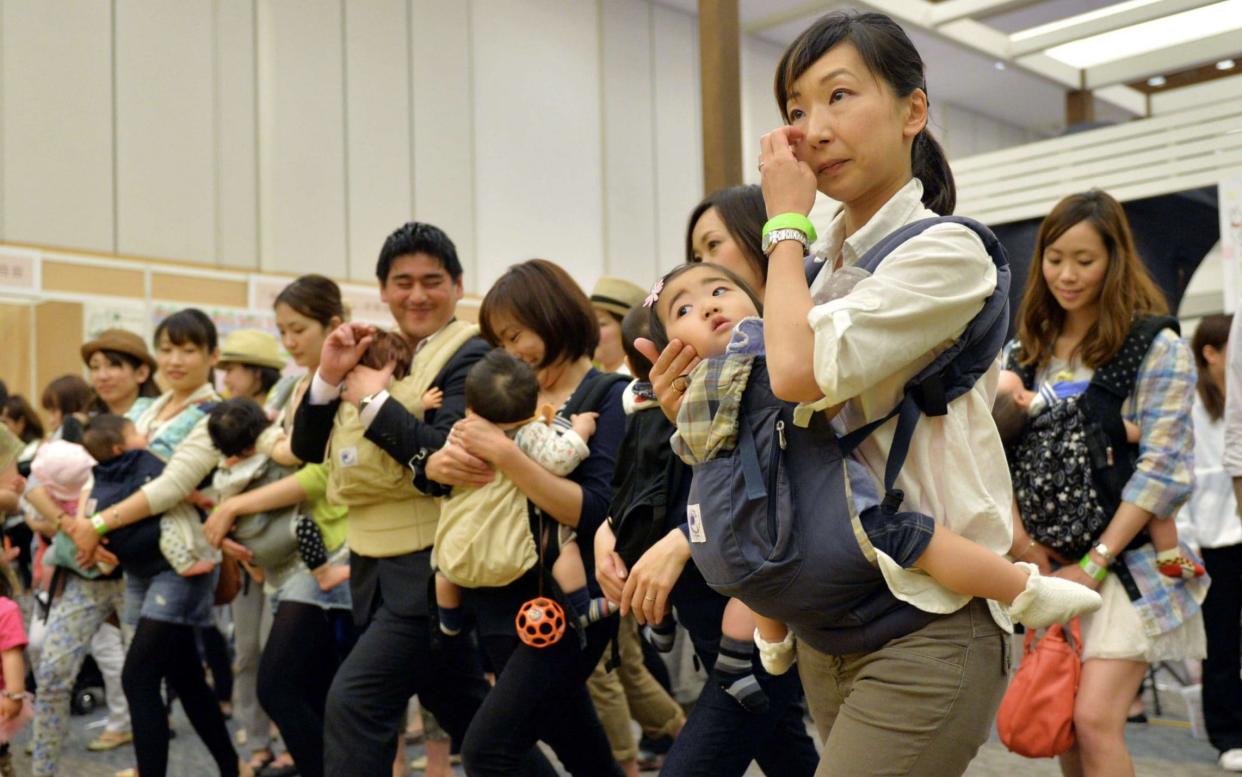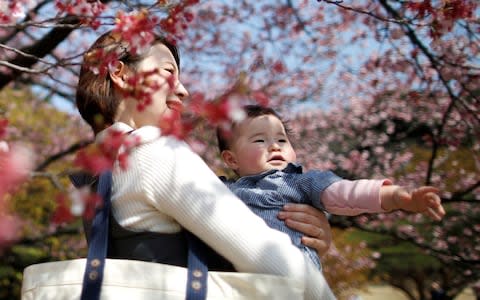Japanese couple apologise for ignoring work pregnancy timetable by conceiving ‘before their turn’

A Japanese worker has been reprimanded by her boss for “selfishly breaking the rules” after she became pregnant before it was her “turn”, according to media reports.
The woman was working at a private childcare centre in Aichi prefecture, north Japan, when she found out she was pregnant.
However, the timing reportedly clashed with “shifts” drawn by the childcare centre director, which listed when female staff were allowed to marry and have children.
The plight of the woman, who has not been identified, highlights the unsettling practice of some Japanese companies dictating when female staff are allowed to marry and have children, depending on their level of seniority.
Her experiences came to light after her husband, aged 28, wrote a letter outlining their plight to Mainich Shimbun, one of Japan’s leading newspapers.

Describing how his wife felt “glum and anxious” after finding out she was pregnant, the husband wrote: “The director at the child care center where she works had determined the order in which workers could get married or pregnant, and apparently there was an unspoken rule that one must not take their 'turn' before a senior staff member...”
The couple formally met with the director to apologise about the pregnancy in person, but the husband claimed that his wife has since been “chided” for “selfishly” breaking the rules of the child care center.
He added: “Childcare providers sacrifice their own children to care for the children of others. It is a noble profession that nurtures children who will forge the future of this country.
“I respect my wife for her commitment to her profession, and continue to encourage her. The conditions of those working to nurture and care for children are evidence of a backward country.”
Why has a generation given up on having children?
The case has prompted a flood of support in Japan, a nation famed for both its shrinking birth rate and a chronic shortage of public childcare establishments.
Many commentators were critical of the nursery, claiming such rules are a violation of human rights - although some were sympathetic to the challenges faced by childcare centres due to widespread staffing shortages.
Japanese women have long had a tough time in the workplace, due to widespread gender discrimination, with the nation slipping to 114th place out of 144 countries in last year’s World Economic Forum global gender equality rankings.
Maternity harassment – known as “matahara” in Japan – is also a major issue, with a 2015 government survey revealing that half of the nation’s working women suffered some kind of harassment after becoming pregnant, with one in five dismissed from their job.

The practice of telling female employees exactly when they are allowed to have children – and when they cannot - is reportedly not confined to the childcare industry in Japan.
Another woman, aged 26, from Tokyo also reportedly spoke out about how a female supervisor at a cosmetics-related company told her she would not be allowed to have a child until she was around 35.
She reportedly received a document detailing childbirth and childrearing schedules which was circulated among 22 female colleagues via email, with the warning: “Selfish behaviour will be subject to punishment.”
The married woman, who has fertility issues, told Mainichi Shimbun: “I already have trouble getting pregnant. How are they going to take responsibility if I put off getting pregnant and lose my chances to have children altogether?”
The outdated postwar concept of “gendered division of labour” still lingers in many Japanese companies, according to Dr Brigitte Steger, an expert on modern Japanese studies at Cambridge University.
Generations apart | How pregnancy advice has changed
“The term matahara is used frequently,” she told the Telegraph. “Women are being harassed for being selfish for taking time out to have children or look after them and for being inconsiderate towards their fellow employees - while women are also criticised for being selfish and not having children.”
Referring to the prime minister Shinzo Abe’s so-called policies of “womenomics”, she added: “The main aim of this politics is to allow more women to combine career with having children, encouraging fathers’ involvement in childcare, allowing maternity and paternity leave, providing more childcare facilities, etc.
“But there are no real structural changes and industries have not all changed their attitudes and demands towards their workforce.”

